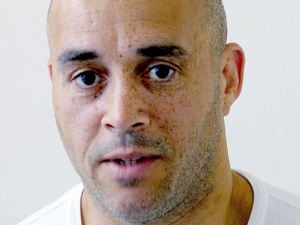Education reforms risk ‘irreparable harm’ to teachers’ status
The General Teaching Council for Scotland has criticised ministers’ plans to transfer its responsibilities to a new Education Workforce Council.

Scotland’s governing body for teaching has said plans to disband it as part of sweeping education reforms risk doing “irreparable harm to the status and identity of teachers”.
The General Teaching Council for Scotland (GTCS), which is responsible for registering teachers and upholding standards, said it was “strongly opposed” to the establishment of a new Education Workforce Council for Scotland (EWCS) as set out by the Scottish Government.
The body was responding to a consultation on the government’s new Education Bill, which seeks to overhaul governance in the sector.

They said the new body, covering both teachers and non-teacher professionals, “will help recognise the role and status of all those working to support learning and teaching as part of a coherent education workforce in Scotland”.
However, in its submission, the council of the GTCS said there was “no evidence-based rationale for replacing GTCS, with its strong brand and highly-regarded national and international reputation, with a new body”.
Its submission said: “It is our view that the proposal to establish an EWCS focuses too much on unnecessary and costly structural change which will only serve to distract and detract GTCS from continuing to make the progress it has made in recent years, rather than focusing on more meaningful, impactful changes.
“The proposed loss of GTCS as an independent body has the potential to do irreparable harm to the status and identity of teachers at a time when teachers’ professionalism, grounded in professional standards, is increasingly recognised as being critical to delivering the Scottish Government’s aspirations of bringing about improvement in outcomes for all and closing the attainment gap.”
The GTCS submission also raised concerns over plans to hand more powers to headteachers – a move council umbrella body Cosla has warned could put school leaders at risk of being sued.
The proposed Headteachers’ Charter gives heads greater power over the curriculum, recruitment and budgets.
In its consultation submission Cosla said: “If the proposals were to be laid before the Scottish Parliament as set out in the consultation document we have serious concerns that significant legal barriers would be created which would expose headteachers to personal liability.”
It continued: “Local authorities will be required to produce extensive guidance for headteachers which they must follow as the authority will be vicariously liable for any acts or omissions of a headteacher.
“If a headteacher acts outside of guidance, it will be possible to sue individual headteachers.
“Therefore, all headteachers will require insurance extra to current local authority insurance.”
Trade unions have also criticised the proposals for the new charter, with the Educational Institute of Scotland (EIS), the country’s largest teaching union, warning only a minority of headteachers and deputies backed the move.
A Scottish Government spokeswoman said: “Our education reforms are focused on giving schools and headteachers more power and money to raise standards and close the attainment gap.
“Our reform proposals are based on international evidence of how high-performing education systems work – and will deliver extra help for teachers in the classroom, more professional development and a stronger voice for parents and pupils.”





